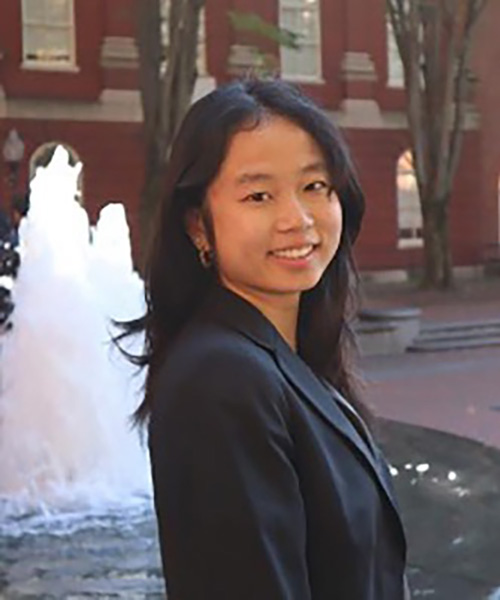
Beyond the Headlines: Bridging Divides through Dialogue
Zifei Zhao | May 15, 2025
Responding To: Georgetown Students Reflect on Virtual Exchanges with Tsinghua University
Bennie Chang
During our virtual exchanges with Tsinghua University students as part of the U.S.-China Student Dialogue, I was in Italy. The call was scheduled for the middle of the night, and I debated whether I would even be coherent enough to contribute. But once we got started, none of that mattered. My group clicked immediately. Everyone was curious, open, and ready to engage. After the session ended, I lay in bed wide awake, replaying the conversations in my head.
The exchange did not hit me with one massive surprise. It was more like a series of small, unexpected moments—each one nudging me to look at something from a slightly different angle.
One of those moments came when I asked about China’s treatment of ethnic minorities. In the United States, this is a topic often framed as clear-cut: state repression, human rights violations. I expected defensiveness, or at least careful language. However, my Chinese peers did not respond that way. They described a sense of increased security in those regions and said that many locals appreciated the stability the government brought. That answer did not match what I had heard before, but it was not dismissive either. It made me realize how easily our media environment can lock us into a single narrative. I did not walk away agreeing, but I did leave thinking, “There is more to this than I have been hearing.”
Another topic that pushed me to recalibrate was surveillance. In the United States, the idea of government surveillance is basically synonymous with mistrust. The assumption is: if they are watching you, something is wrong. So I was genuinely surprised when students spoke positively about it. They said it made them feel safer and that it helped the government respond to problems quickly. I had not considered that surveillance might be seen less as control and more as protection, especially in a system where people are taught to trust authority. I still feel wary about it, but I could see why they did not.
I also noticed how different the conversation styles were. From the start, the Americans—myself included—talked more, jumped in faster, filled every pause. Our Chinese counterparts were more reserved. Part of it might have been the language barrier, but it felt deeper than that. I remembered how Chinese international students at my university in the United States often spoke up confidently. But in this exchange, the Americans tended to dominate. Sometimes it felt like we were answering our questions without waiting to hear theirs. I was glad to see that change toward the end—more Chinese students stepped up as group representatives, and the dynamic felt more balanced.
The best part of this experience was not any single topic. It was the chance to ask questions and hear responses that were not filtered through media, headlines, or assumptions. It was personal. It made me think more carefully about my perspective and theirs.
I grew up in a predominantly Asian-American community, but that did not automatically make me globally or culturally fluent. This exchange reminded me that real understanding takes work. And more often than not, it starts with listening.
Bennie Chang (SFS’26) is a student at Georgetown University majoring in regional and comparative studies.

Zifei Zhao | May 15, 2025

Aanika Veedon | May 15, 2025

Luke Hughes | May 15, 2025
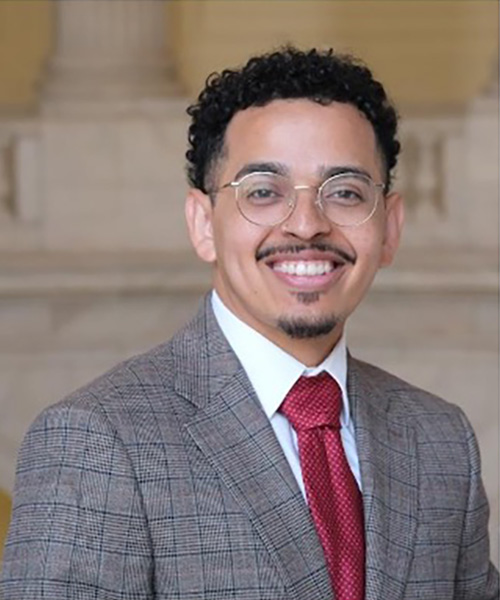
Daniel Castro Bonilla | May 14, 2025

Emmy Ekstrand | May 14, 2025

Isabella Stratta | May 14, 2025

Lam Tran | May 14, 2025
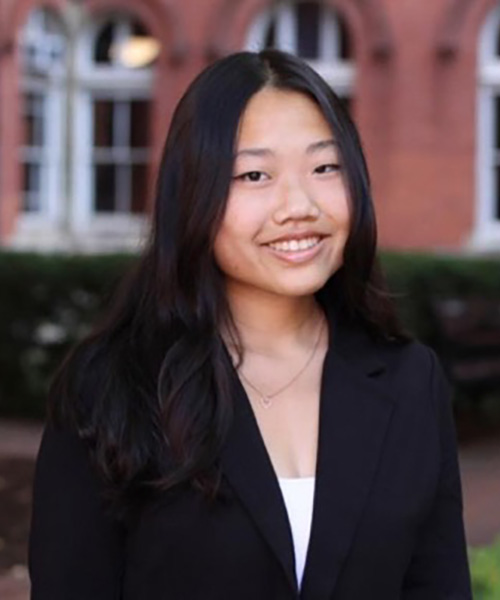
Maggie Yang | May 14, 2025

Tiffany Cowan | May 14, 2025

Drew Zacharias | May 14, 2025
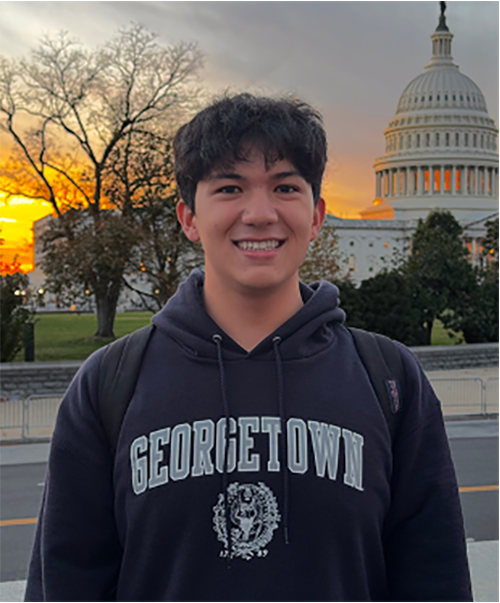
Patrick Coggin | May 14, 2025
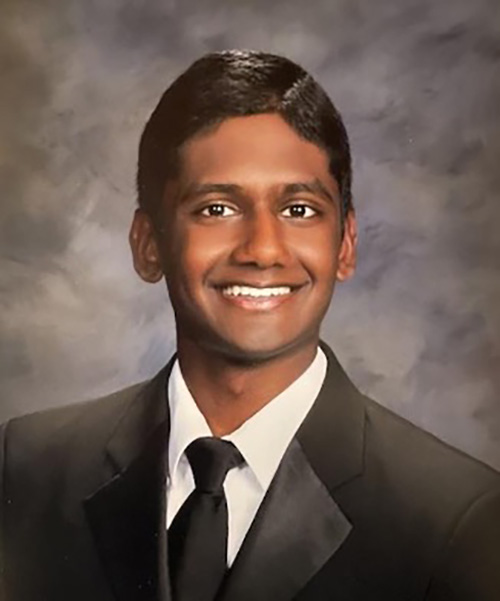
Raghav Akula | May 14, 2025